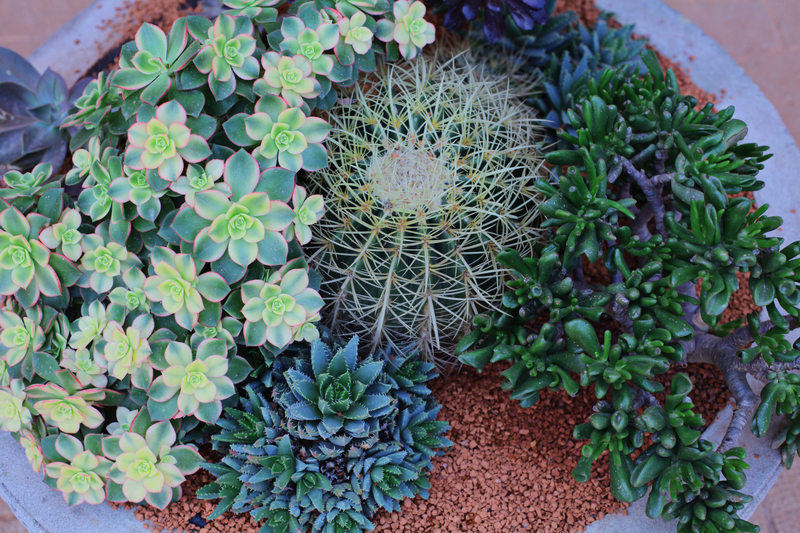Weed Woes No More: Discover 3 Tips Every Gardener Should Know
Posted on 02/06/2025
Weed Woes No More: Discover 3 Tips Every Gardener Should Know
Weeds are the arch-nemesis of every thriving garden. Their relentless growth can choke your precious plants, robbing them of essential nutrients, sunlight, and moisture. If your beautiful garden is under siege from unwanted invaders, you're not alone. Weeds are a common headache for gardeners of all levels, but the good news is that there are tried-and-tested methods for keeping them under control. "Weed woes" can be a thing of the past if you know the right steps to take.
In this comprehensive article, we'll reveal 3 essential tips every gardener should know to help you prevent, manage, and remove weeds for good. Whether you're dealing with dandelions in your lawn, crabgrass in your veggie patch, or chickweed in your flower beds, our expert advice will have you saying goodbye to those pesky plants. Read on and discover effective weed control tips, sustainable methods, and expert insights to keep your garden lush and weed-free all year round!
Why Weeds Are a Problem
Anyone who's spent time in a garden knows how quickly weeds can wreak havoc on even the most carefully tended plots. But why exactly are weeds such a nuisance?
- Nutrient Competition: Weeds compete with your desirable plants for water, minerals, and nutrients. This can slow the growth of your flowers, vegetables, or shrubs.
- Light Blockage: Fast-growing weeds can overshadow slower-growing plants, depriving them of sunlight needed for photosynthesis.
- Disease Spread: Certain weeds harbor pests and diseases that can jump to your garden crops.
- Unattractive Appearance: Weeds can make your garden look messy and neglected, ruining the aesthetic value.
- Soil Depletion: Persistent weeds can gradually deplete the soil of vital nutrients over time.
It's clear--eliminating weed woes is about more than cosmetic appeal; it's essential for your garden's long-term health and productivity. Now, let's dive into the best practices for weed management!
Tip 1: Mulch Your Way to Weed-Free Gardens
Mulching is a gardener's secret weapon against weeds. This simple, eco-friendly practice not only blocks sunlight from reaching weed seeds but also conserves moisture and improves soil structure.
Why Is Mulch Effective for Weed Suppression?
- Blocks Light: Most weed seeds need sunlight to germinate. A thick layer of mulch creates an effective barrier.
- Makes Pulling Weeds Easier: Any weeds that do sprout tend to have weaker roots, which makes them much easier to remove.
- Moisture Retention: Mulch helps keep soil moist for longer, giving garden plants an added advantage over weeds.
- Improves Soil: Organic mulch breaks down over time, enriching your soil and creating a less hospitable environment for weeds.
Which Mulch Should You Use?
There are several types of mulch to choose from, each with its own benefits. Here are the most common:
- Organic Mulch: Includes bark, straw, grass clippings, shredded leaves, and compost. This is best for vegetable gardens and flower beds.
- Inorganic Mulch: Includes gravel, stone, or black plastic sheeting. These are useful in pathways or for very stubborn areas.
How to Apply Mulch for Maximum Weed Control:
- Clear the Area: Remove existing weeds before applying mulch.
- Apply a Thick Layer: For most organic mulches, apply 2-4 inches deep. For inorganic mulches, follow the manufacturer's recommendations.
- Don't Smother Plant Stems: Keep mulch a few inches away from the stems of trees, flowers, or veggies to prevent rot.
- Replenish as Needed: Organic mulch will decompose over time; refresh the layer annually.
Remember, selecting the right mulch can make a dramatic difference in your quest to eliminate weed problems and maintain a healthy garden ecosystem!
Tip 2: Smart Weeding Techniques
Manual weed removal is often the most effective method for immediate weed control. But knowing how and when to weed can make this chore much faster and more productive.
The Best Time to Weed
- After Rain: Weeding is easiest when the soil is moist. Roots come out more cleanly, reducing the risk of regrowth.
- Before Seeding: Remove weeds before they flower and go to seed to prevent them from multiplying.
- Early Spring: Weeding early in the season helps you get ahead before weeds become deeply rooted.
Proper Weeding Tools
The right tool can make all the difference. Consider adding these to your garden weed arsenal:
- Hand Weeder: A forked tool for prying out deep taproots and dandelions.
- Hori-Hori Knife: A versatile Japanese-style knife for slicing through roots and loosening soil.
- Hoe or Stirrup Hoe: Quickly slice weeds off at the soil surface for larger areas.
- Gloves: Protect your hands, especially when dealing with thorny or irritant plants.
Don't Leave Weed Roots Behind
It's tempting to just pull off the green tops, but many weeds will regrow from remaining roots. For best results:
- Grasp weeds low to the ground and pull gently but firmly.
- Use a tool to loosen the soil if needed.
- Dig out tough perennial weeds like dandelions or thistles completely.
Dispose of mature weeds carefully--especially those with seeds--so they don't return to your soil.
Smart Weeding Strategies
- Work in Small Sections: Focus on one area at a time for thorough results.
- Stay Consistent: Regular attention prevents weeds from taking hold.
- Spot-Weed During Walks: Carry a hand weeder on your strolls and pull any troublemakers as they appear!
With these smart weeding tips, you can stay ahead of weed woes before they take over your entire garden.
Tip 3: Preventing Weed Germination
Stopping weeds before they sprout is the ultimate weapon in the fight against unwanted growth. Prevention is always easier than a cure. Controlling weed germination relies on some proactive and strategic approaches in your gardening routine.
Develop Thick, Healthy Plant Cover
- Dense Planting: When desirable plants are spaced closely, their leaves block light from the soil, suppressing weed seeds.
- Cover Crops: In vegetable gardens, plant cover crops (such as clover, rye, or buckwheat) in the offseason to outcompete weeds, fix nitrogen, and add organic matter.
Use Pre-Emergent Weed Barriers
Pre-emergent weed controls are substances or physical barriers that prevent weed seeds from growing in the first place.
- Corn Gluten Meal: An organic option that prevents seed germination. Scatter in spring before weeds sprout.
- Landscape Fabric: Install weed barrier fabric under mulch in particularly weedy areas or new beds.
- Cardboard or Newspaper: Lay thick layers under mulch for added weed suppression; as they break down, they enrich the soil.
Be careful: Pre-emergents will also affect seeds you want to plant--use them only in established areas.
Careful Watering Practices
- Direct Water to Roots: Using drip irrigation or soaker hoses delivers water straight to your plants--while depriving weed seeds of the moisture they need to sprout.
- Water Early: Water early in the day to reduce moisture on the surface overnight, which can favor weed growth.
By addressing weed germination, you're nipping weed problems in the bud--literally!
Bonus Tips for Weed Management
Beyond the big three, here are some quick strategies that can further reduce weed woes and encourage a flourishing, healthy garden:
- Regular Maintenance: Set aside time each week for quick weed patrols.
- Edge Your Beds: Use a spade or manual edger to create a border that stops grass and weeds from creeping into flower beds.
- Solarization: In problem areas, cover bare soil with clear plastic during the hottest months to 'cook' weed seeds.
- Avoid Soil Disturbance: Limit digging or turning the soil unless necessary; this brings buried weed seeds to the surface.
- Healthy Lawn Care: Mow your lawn high (at least 3 inches) and overseed bare patches to crowd out invaders.
Frequently Asked Questions
What are the most persistent types of garden weeds?
- Dandelion - A deep taproot makes them tough to remove.
- Bindweed - Climbing, vining, and almost impossible to eradicate without persistence.
- Crabgrass - A prolific seeder in lawns and garden beds.
- Chickweed - Fast-growing, low to the ground, and spreads easily.
- Canada Thistle - A prickly perennial with aggressive underground shoots.
Are chemical herbicides safe for my garden?
While commercial herbicides can be effective for weed removal, many gardeners prefer organic and manual methods to protect pollinators, pets, and the environment. If you must use chemicals, read labels carefully, use spot treatments, and avoid windy days to prevent drift onto your crops.
Can boiling water or vinegar kill weeds?
Yes, pouring boiling water over weeds can kill them on contact, especially in sidewalk cracks. Vinegar solutions work best on young, tender weeds but may not kill the root on more established plants. Use caution, as both methods can hurt nearby plants.
How can I keep my vegetable garden weed-free without constant work?
Mulch deeply, use landscape fabric where possible, plant closely, and weed early and often. These steps will keep your efforts to a minimum while maximizing your garden's vitality.
Conclusion: Say Goodbye to Weed Woes!
Taking control of weeds isn't just about aesthetics; it's key to growing healthy and productive plants all season long. By implementing these expert gardening tips, you can enjoy a weed-free garden and reclaim your time for tasks you truly enjoy--like planting, harvesting, or simply relaxing outdoors!
- Mulch prevents weeds from ever seeing the light of day.
- Smart weeding keeps your beds clear without burning out.
- Prevention techniques stop weeds before they even start.
With these weed management secrets, even the most determined weeds don't stand a chance. Now that you know the best ways to eliminate weed problems, grab your gloves and tools--it's time to turn weed woes into garden wins!
Did you find these tips useful? Share your own weed control victories or challenges in the comments below!


Latest Posts
Crafting Fertile Grounds from Organic Waste Materials
Your Pathway to a Blossoming Garden: 9 Beginner's Tips
Explore how your backyard garden can be a tool for climate action
Keep Your Garden Safe: Combat Extreme Weather Conditions
Revitalize Your Garden with Creative and Comfortable Seating Ideas

